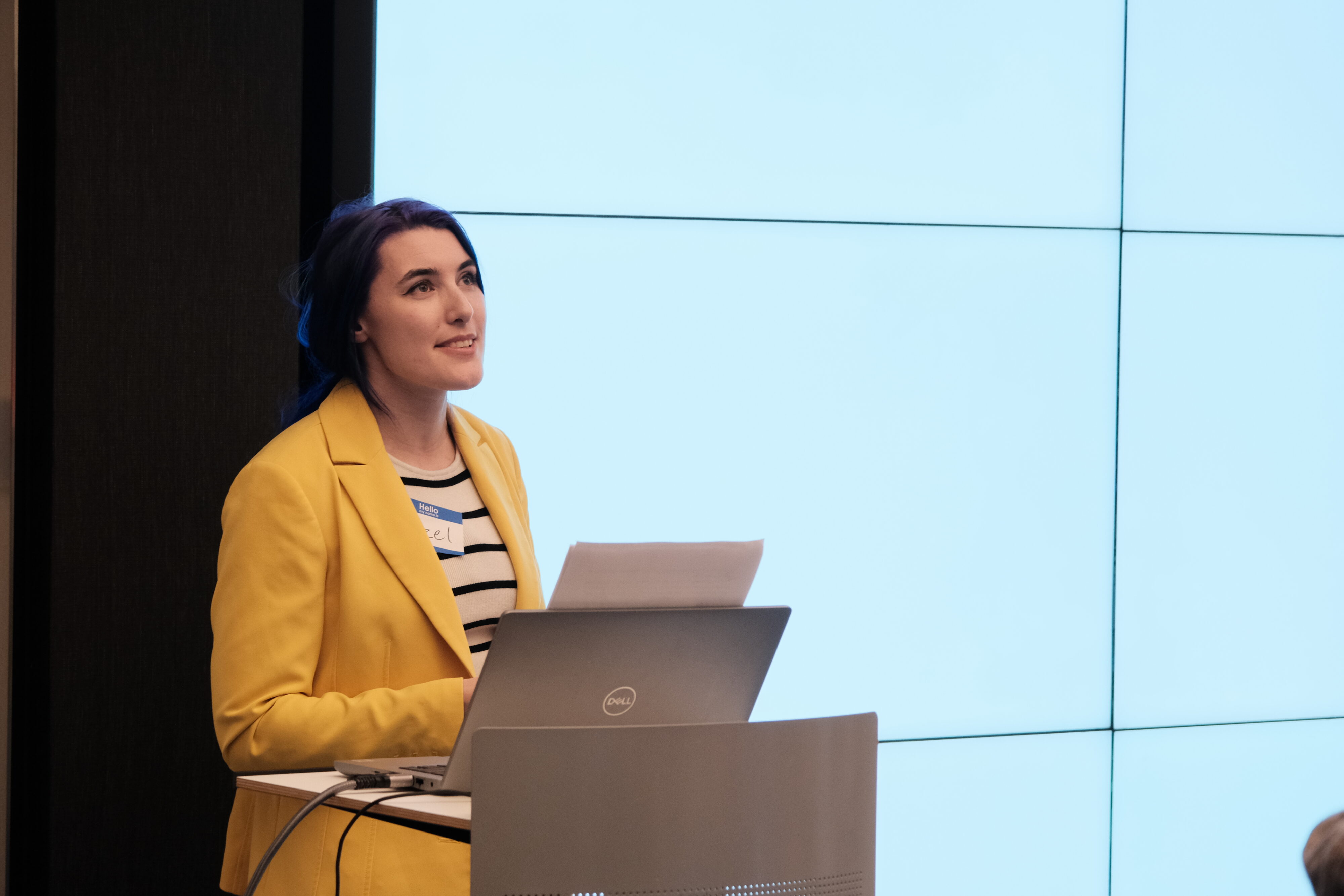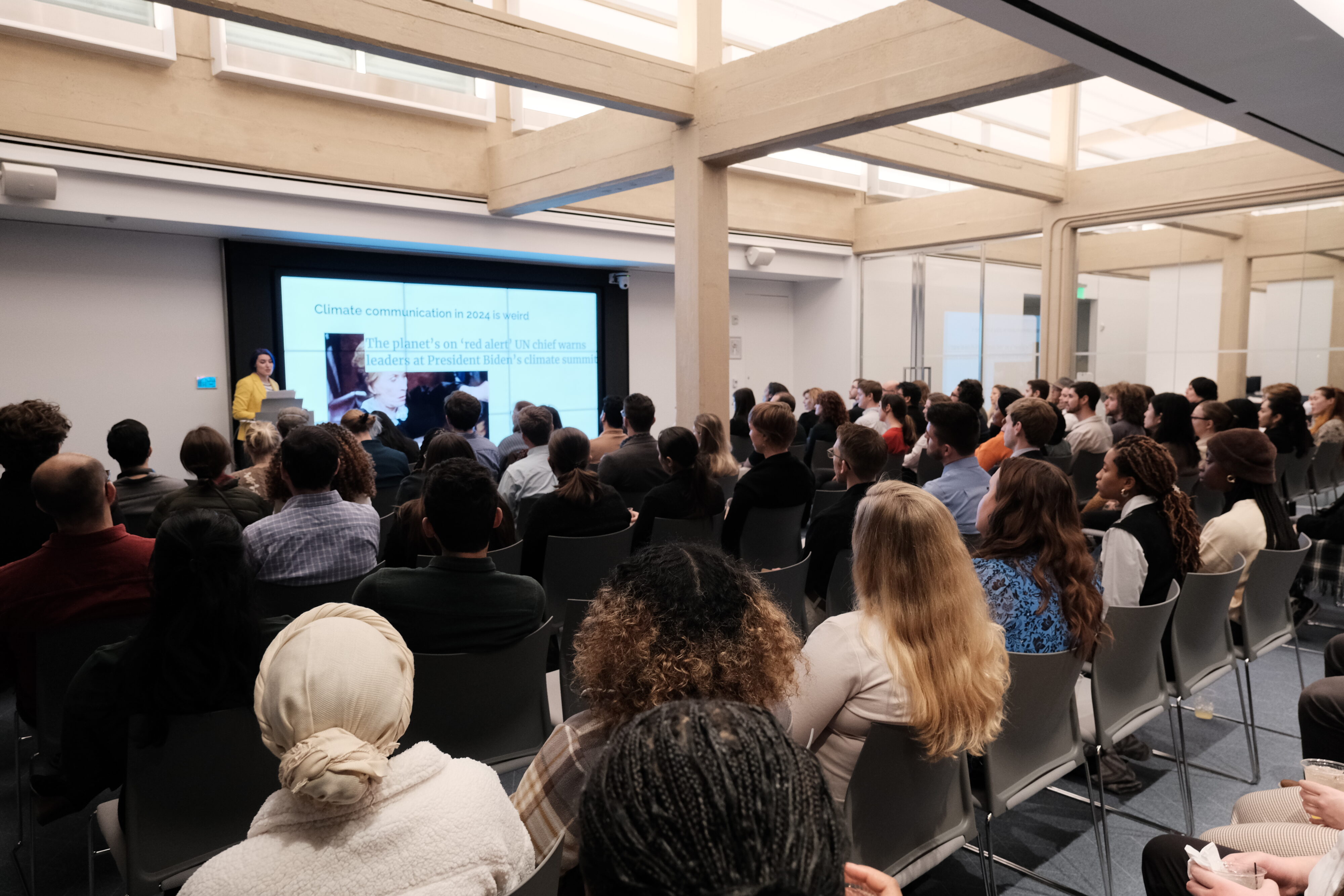
Aaron Dye

Aaron Dye
For a new generation of environmental advocates searching for like-minded voices online, Instagram influencer Hazel Thayer might seem like an unconventional icon. In one video posted to Instagram, she enthusiastically proclaims, “Sometime in the 90’s the world almost stopped climate change,” followed by the monotone admission: “And then we f**ked up.”
Thayer’s comedic timing and dyed hair may throw some people off who are used to suited pundits or images of scientists in lab coats. But these features are just scratching the surface of why she has struck a chord with nearly 200,000 followers on Instagram.
Across the internet, climate change coverage often comprises dire warnings and complex scientific explanations. While such forms of expression have an important purpose, comedy can also attract attention to the climate crisis.
Hazel Thayer, a climate activist, video creator, and amateur stand-up comedian, has set out to reshape the narrative on climate issues. Her unique approach involves simplifying complex problems by focusing on tangible solutions while also intertwining humor with environmental activism.
Thayer’s journey towards environmental activism originated with her frustration in the one-dimensional focus on science in climate communication and her realization that she wanted a different outlet to address climate issues. She was already engaging with friends in conversations on climate aspects, in a manner that combined seriousness and comedy, as she explained when I interviewed her.
Recognizing the difficulties of understanding critical aspects pertaining to the climate crisis, such as government policy or economic implications, Thayer embarked on a mission to make intricate climate topics relatable through humor.
She eventually decided to create her own social media accounts focusing on climate change, including a TikTok account that has amassed 128,000 followers. Because of her growing popularity on social media, she was approached to create two online web series, namely “The Climate Breakdown” with The Weather Network and “UnF*cking the Planet” with Pique Action.
When asked how she goes about creating content on climate change, Thayer stated that she would look at complex words thinking, “How would a regular person describe this?”
Because her work has resonated so well with youth, she has recently partnered with Reservoir: Center for Water Solutions in Washington, D.C. which has a special interest in youth education. On Feb. 8, she served as the keynote speaker for a Reservoir event, titled “Careers for Change: Climate Action” which was geared towards college students and young professionals. Students were later able to network with several industry professionals in attendance including Thayer.

According to Thayer, getting involved in the climate movement doesn’t require becoming a climate scientist or an environmental lawyer. As she emphasizes, “There’s a lot of different ways to get involved.” She is convinced that the climate crisis can only be addressed if fairness is a key consideration. In her view, “Anything that kind of improves living standards and equality will wind up helping the climate as well.”
In her keynote speech, Thayer honed in on the intricate connection between economic disparity and climate change. She highlighted the disproportionate contribution of the world’s wealthiest people to climate change, as compared to the global poor and the middle classes.
As Thayer stated, the challenge has shifted from having to convince people of the reality of climate change to seeking to foster an agreement on viable solutions. Her central argument revolves around the idea that creating a more equitable economy is intrinsic to addressing climate issues.
Thayer’s journey, from expressing her climate concerns to friends to becoming a prominent figure in online climate activism, while injecting humor into the conversation, showcases the myriad ways in which young people can contribute to addressing the climate crisis.
“Already, young people are figuring it out that it’s kind of about speaking up and being annoying about climate,” Thayer said in an interview.
Thayer’s unique blend of comedy and activism is meant to inspire others to find their own pathways to activism and pursue their own climate action, as she recounts instances in which people credited her for their presence at the 2023 March to End Fossil Fuels.
By turning serious issues into comedic content, she has effectively captured the attention of a younger audience, injecting new life into the climate change conversation. Often times, a good laugh can be a step toward positive change.